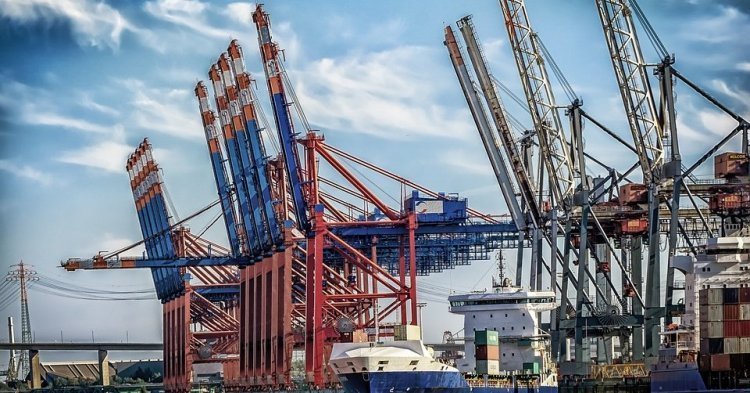The trade dispute between the US and the European Union is entering the next round. US President Trump announced on May 1 that the EU would still be excluded from the planned punitive tariffs on aluminum and steel imports, at least until the expiry of the new deadline on June 1. Normally, this could be seen as a partial success for the EU Commission. However, at a time when the transatlantic relationship is frostier than it has been in a long time, the joy in Brussels is not overwhelming. The EU has to use these circumstances as an opportunity to approach the USA in a determined and strong fashion.
Even if the EU has got some respite, Brussels has had a hard time over Trump’s uncompromising course. The growing frustration over the intransigence of the US government was further increased on 6th April when Trump imposed sanctions on several Russian magnates and companies. As was the case with the punitive tariffs before, it seemed that these unilateral trade measures were imposed without considering their effect on America’s allies - with potentially fatal consequences for the European economy.
US tariffs against Russia: a growing problem for Europe
If the customs duties were already a cause for concern, the latest sanctions are just another slap in Europe’s face. Representatives of the US aluminum industry themselves see duties as “industry-wide and globally harmful.” In fact, the danger to the European economy was rarely so acute. US sanctions against Russian companies hit the EU particularly hard, because Washington threatens not only American citizens with fines, but also non-Americans, if they deliberately enable Russian companies and persons under sanctions to conduct business. This extra-territoriality not only hinders Europe in making trade decisions independently, but also restricts access to materials on which its economy is strongly dependent.
This is a problem above all with aluminum. Europe receives 38 percent of its crude aluminum imports from Russia. Most of it comes from Rusal, the world’s second largest aluminum producer, which was effectively excluded from the European market by US measures. Now business representatives fear supply shortfalls. A position paper issued by the Economic Metal Association states that the sanctions would have a “considerable impact on trade flows”, with negative consequences “for the entire supply chain.” Leading industry branches, especially machinery and automobiles, would be paralyzed.
A strong effect on small and medium-sized businesses
This would hit small and medium-sized companies in particular, the economic engine of many EU member states, including Italy and France. But no EU country is as dependent on small and medium-sized companies as Germany. In fact, German industry is already rebelling against America’s policies: companies like Siemens, Daimler and Volkswagen have extensive business relationships with Russia, and see their investments in the country at risk and fear losing millions. Nevertheless, these large companies are more likely to be able to absorb the resulting damage. The medium-sized business sector, on the other hand, hardly has the same capacities.
According to figures from the Federal Ministry of Economics, medium-sized businesses account for almost 60 percent of all jobs - approximately 16.4 million jobs - and generate around 35 percent of total German turnover. Since 99 percent of all German companies are small and medium-sized companies, production stops or closures of some companies would be catastrophic for the Federal Republic. Regions such as Upper Franconia would be acutely affected. The region alone has more than 100 companies with close trade relations with Russia, which also play an important role as suppliers to German car makers. According to the Coburg Chamber of Commerce and Industry, sanctions have in some cases already reduced business by two-thirds.
However, due to the breadth and vague formulation of the sanctions, small and medium-sized businesses must be very careful in order not to have to fear punitive measure from the US as well. According to the East Committee of the German Economy, the resulting investigative effort is “barely manageable” for medium-sized companies and reduces business opportunities immensely. In the final analysis, according to CEO of the German-Russian Chamber of Foreign Trade (AHK), Matthias Schepp, German companies are as a result practically “taken hostage by a third party”. In the short term, losses of up to € 377m are expected, and in the medium term even losses of billions.
Europe needs a coherent foreign trade policy
And this would have grave consequences for the whole of Europe. Therefore, it is in the interest of all EU member states to pull together and form a united front against Trump and his trade policy. Emmanuel Macron and Angela Merkel have already tried unsuccessfully to dissuade Trump from confrontation. But pressure from France and Germany alone is not enough to influence Trump. A US President who has unequivocally expressed his disdain for Europe through unilateral, extra-territorial actions can only be countered by negotiations with unanimous, unwavering EU positions on the issue. Trump has shown in the past that he is easily impressed by shows of strength.
However, it is extremely difficult to find a common line within the EU, which significantly weakens EU’s position. Even so, today it is more important than ever to get together and show determination. The defiant credo of the European Commission not to be blackmailed by the US is an important symbol behind which the EU states should gather. Given that the US’s aggressive trade policy can destabilise the economy of the entire EU, unity is critically important for the EU.


Follow the comments: |
|
